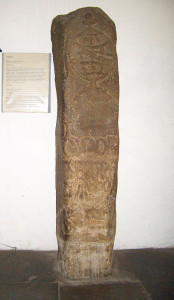Black Portuguese from Jakarta welcome new year asking for forgiveness and holiness
On Sunday, January 4, hundreds of “black Portuguese” who live in the northern part of the Indonesian capital, Jakarta, welcomed the new year with a collective “bath” of white powder, in search of forgiveness and holiness.
The “tugu” community, Protestant Christians in the world’s biggest Muslim country, are a result of the crossbreeding of slaves from Portuguese origin in India. Albeit there is no definitive version of their origin, it is said they were taken to the area where today’s Jakarta is by businessmen, craftsmen and adventurers from Malacca, Sri Lanka, Cochin and Calcutta.
The approximately 300 “black Portuguese” who live in the Tugu village of northern Jakarta, follow the century old tradition of putting white powder on each other’s faces, during a ceremony that takes place on the first Sunday of January.
It is one of the best known events in the community and it is called “mandi-mandi” (shower, in Indonesian), which means “literally” take a bath to wash your “dirty” body, Lisa Michiels, one of the practitioners told news agency Lusa.
“First we pray together and listen to the Lord’s word in gratitude for all God’s benedictions. Afterwards, we have lunch together before we start the ceremony”, she added.
According to Indonesian tradition, white or off white “is like a symbol of holiness and forgiveness”, but amongst the Portuguese descendants in Malacca, Malaysia, there is a similar tradition where “water instead of powder” is used.
It is also the forgiveness in the families that marks the moment of the 12 strokes and also the first day of the year, when local tradition — known as “rabu-rabu” — invites you to go from house to house asking for forgiveness, to sing and to drink.
The Portuguese were the first Europeans to reach the territory where today Indonesia lies, in 1512, and in spite of subsequent colonization by the Dutch who tried to erase the Portuguese heritage signs, the papiá tugu language, a form of Creole, has resisted through the centuries.
The last person to speak this form of Creole died in 1978, but the language is still part of the songs of “Keroncong”, a popular music style which resulted from the arrival of the ukelele, brought by the Portuguese.
As in previous years, the songs by the group Keroncong Tugu — which is famous in Indonesia and is comprised of several members of Lisa Michiels’ family — focus especially in “mandi-mandi”, which attracts Indonesian individuals from different places, as well as foreigners, including Portuguese.
The community — which also has members in other regions of Indonesia and abroad —, maintains some Portuguese traditions, like drinking wine at Christmas and New Year’s.



